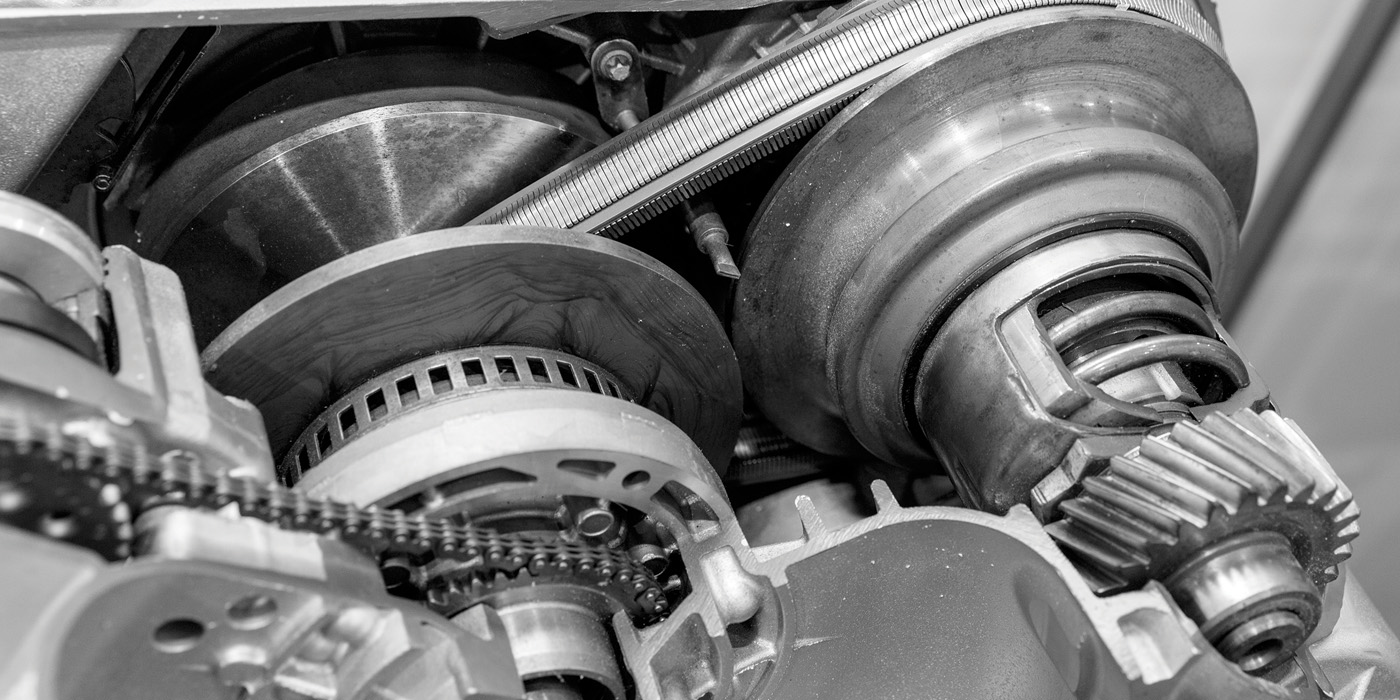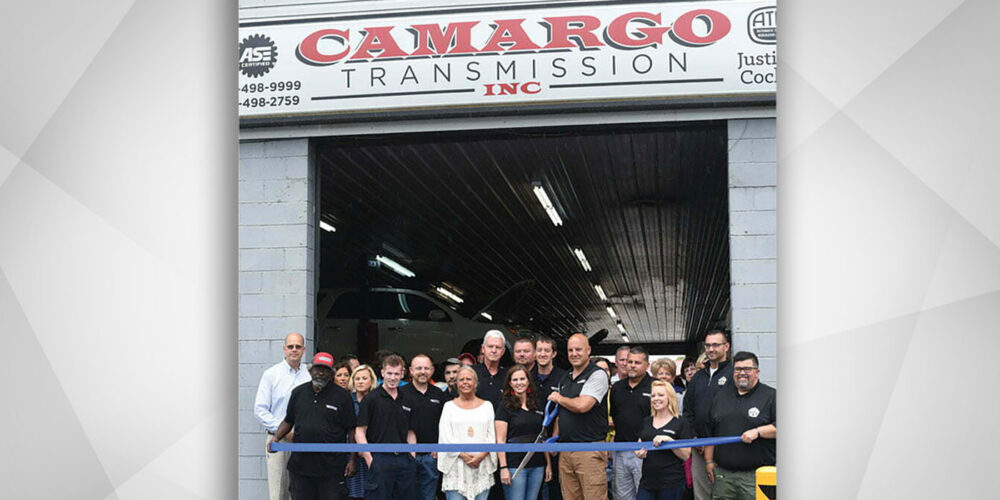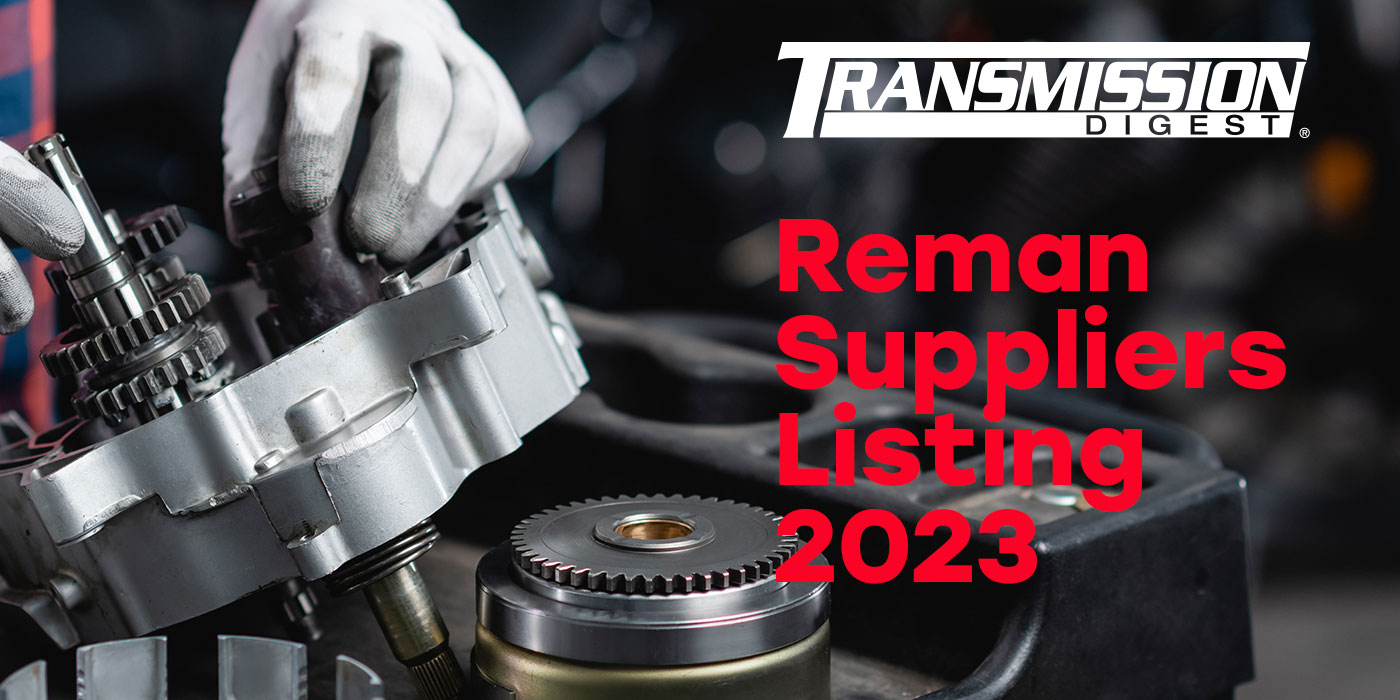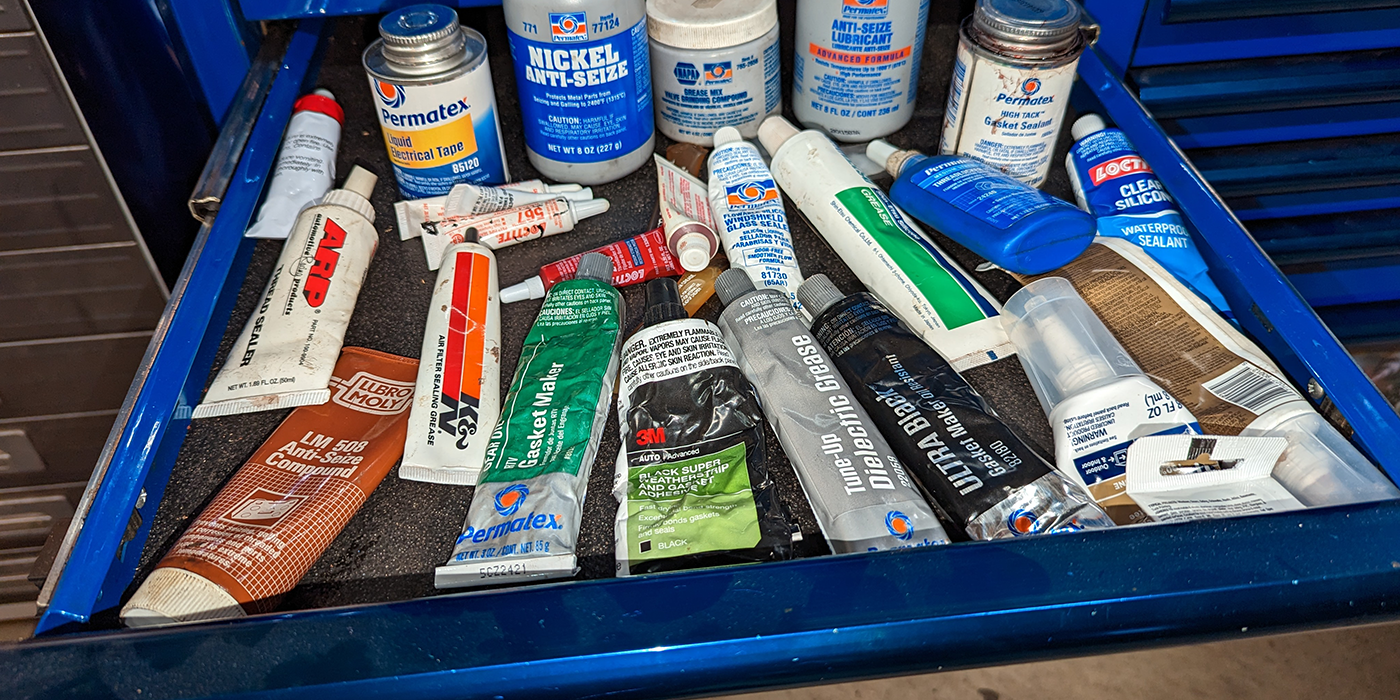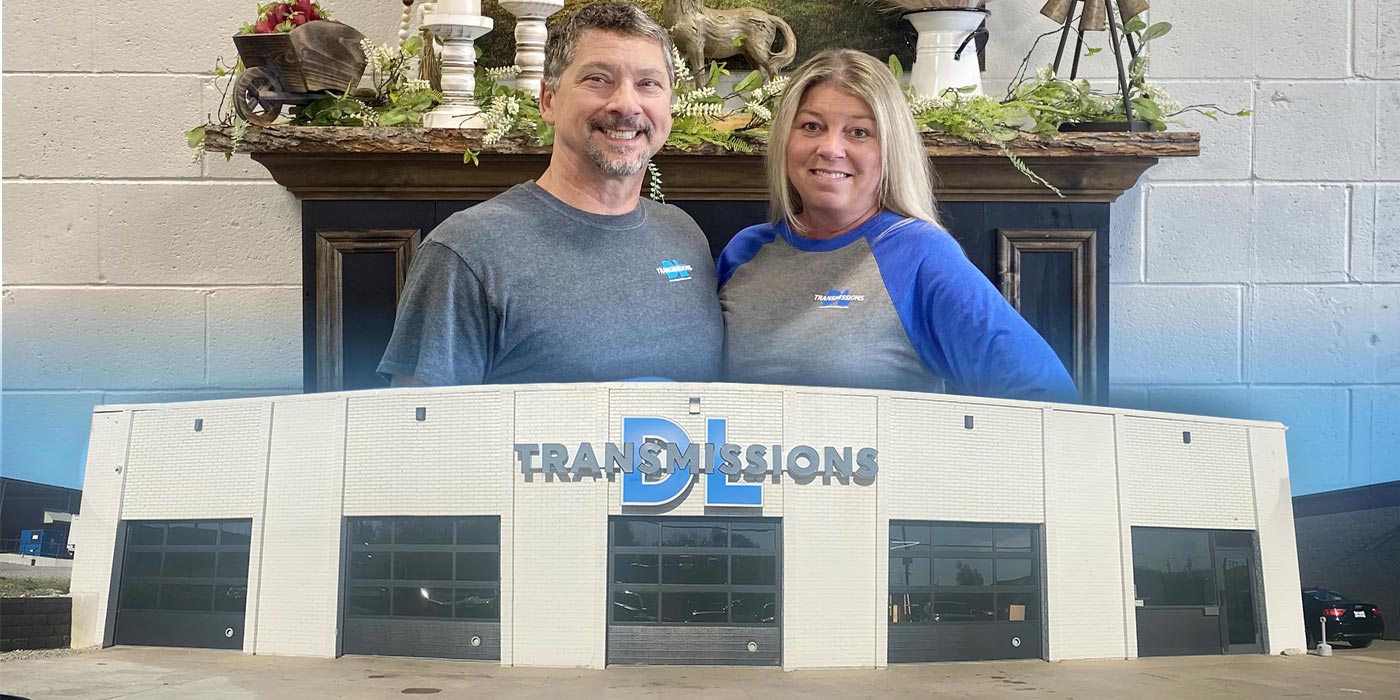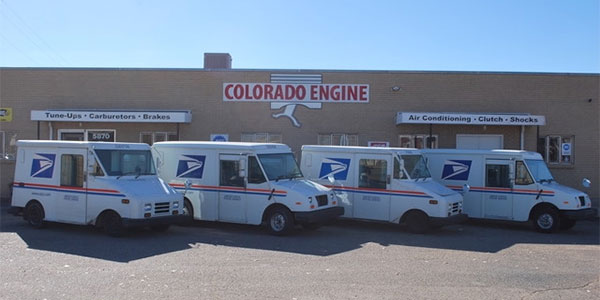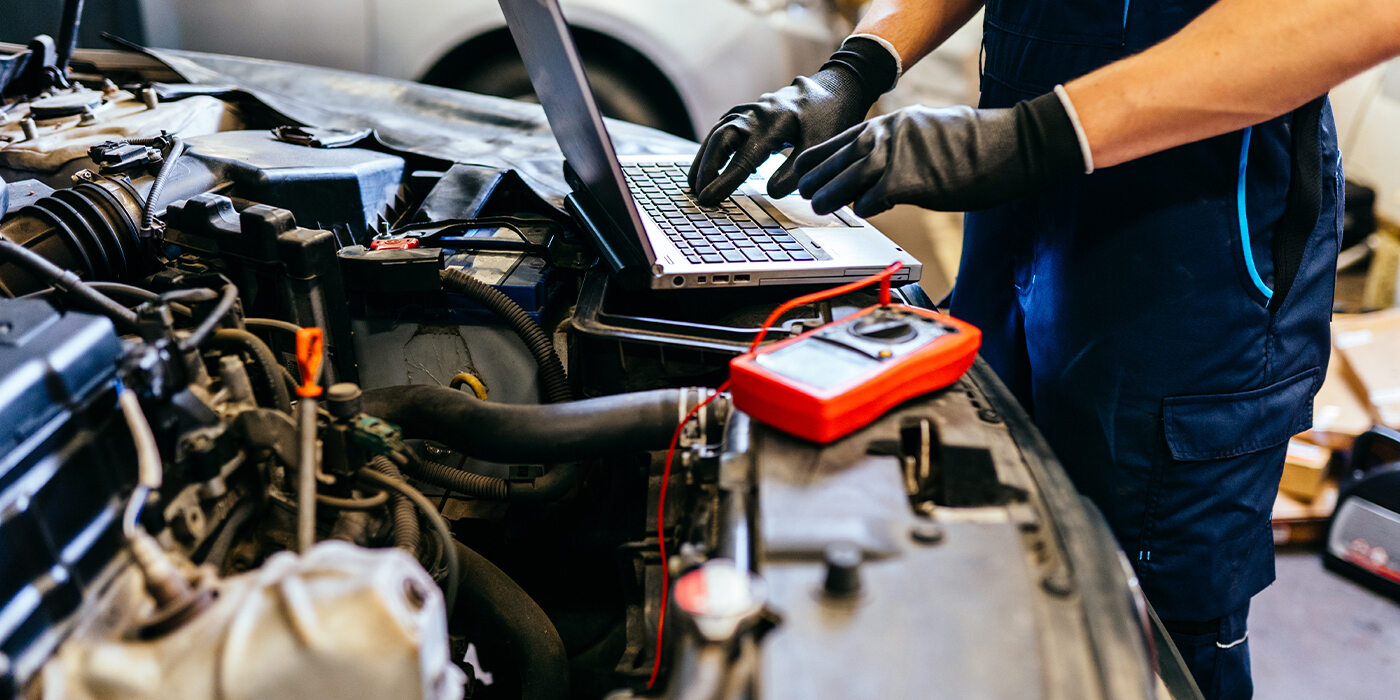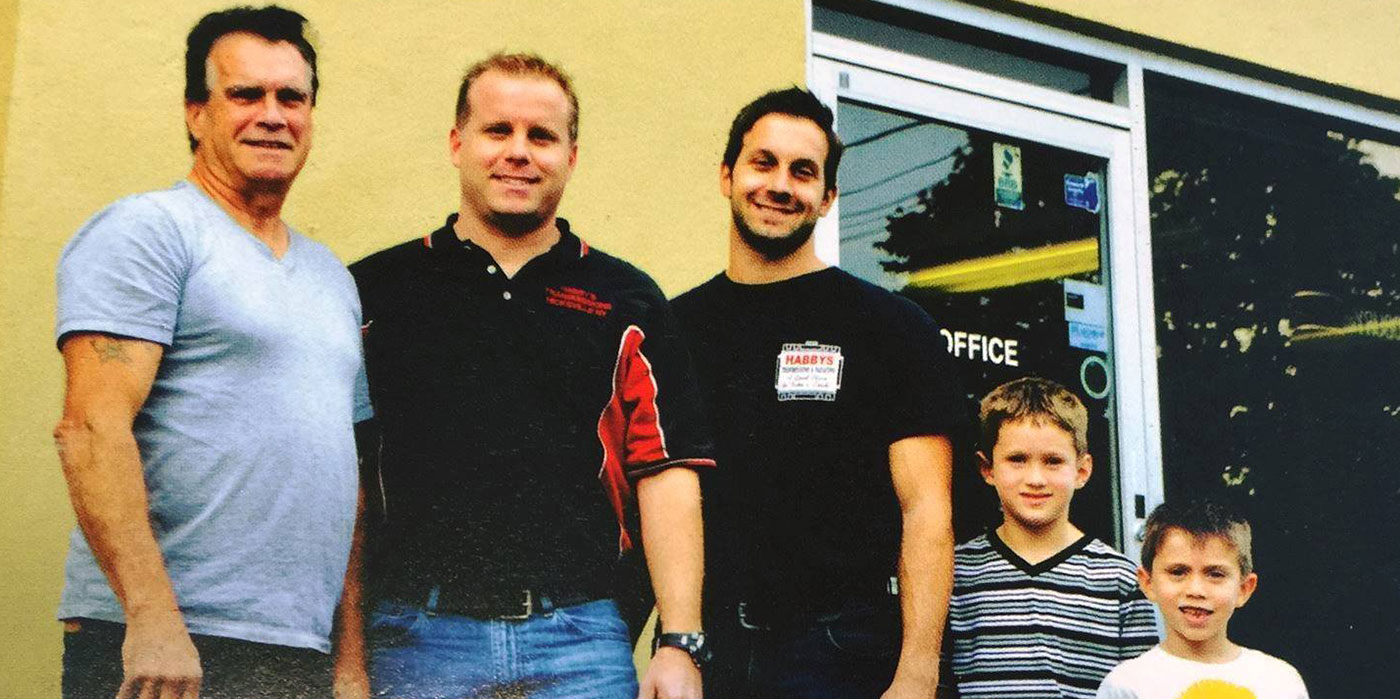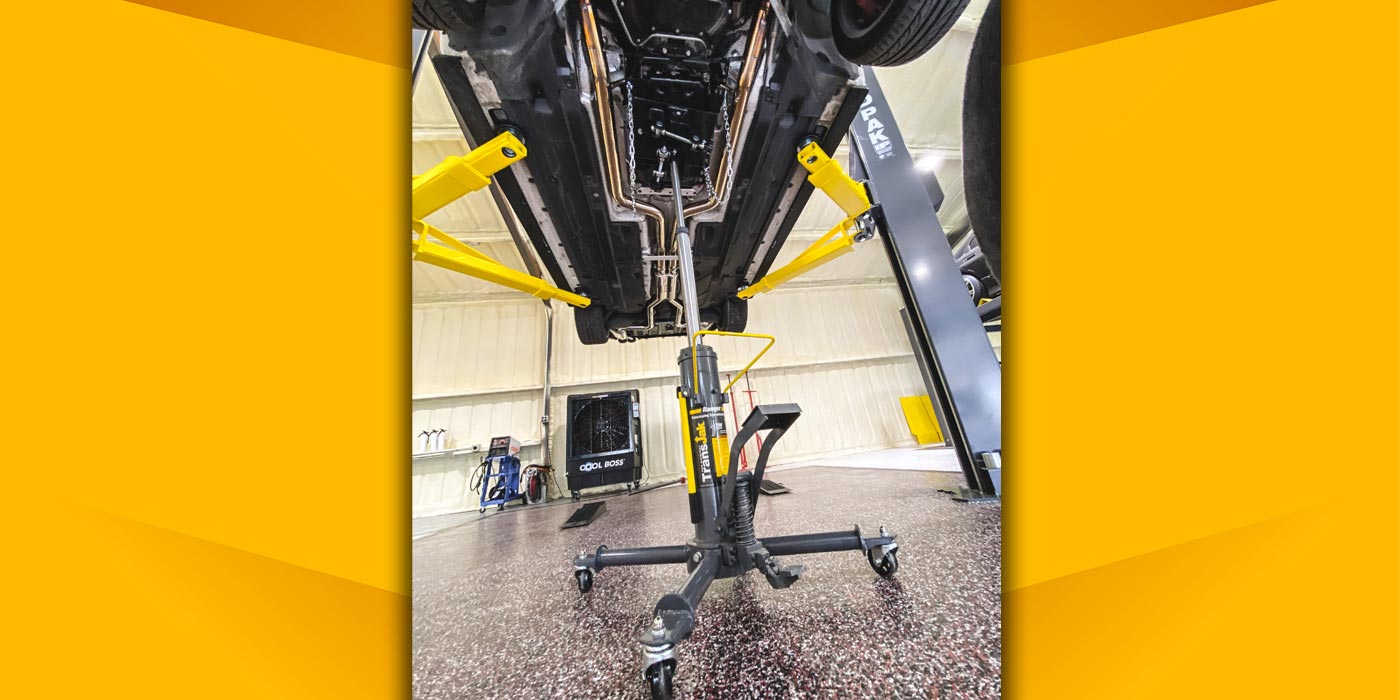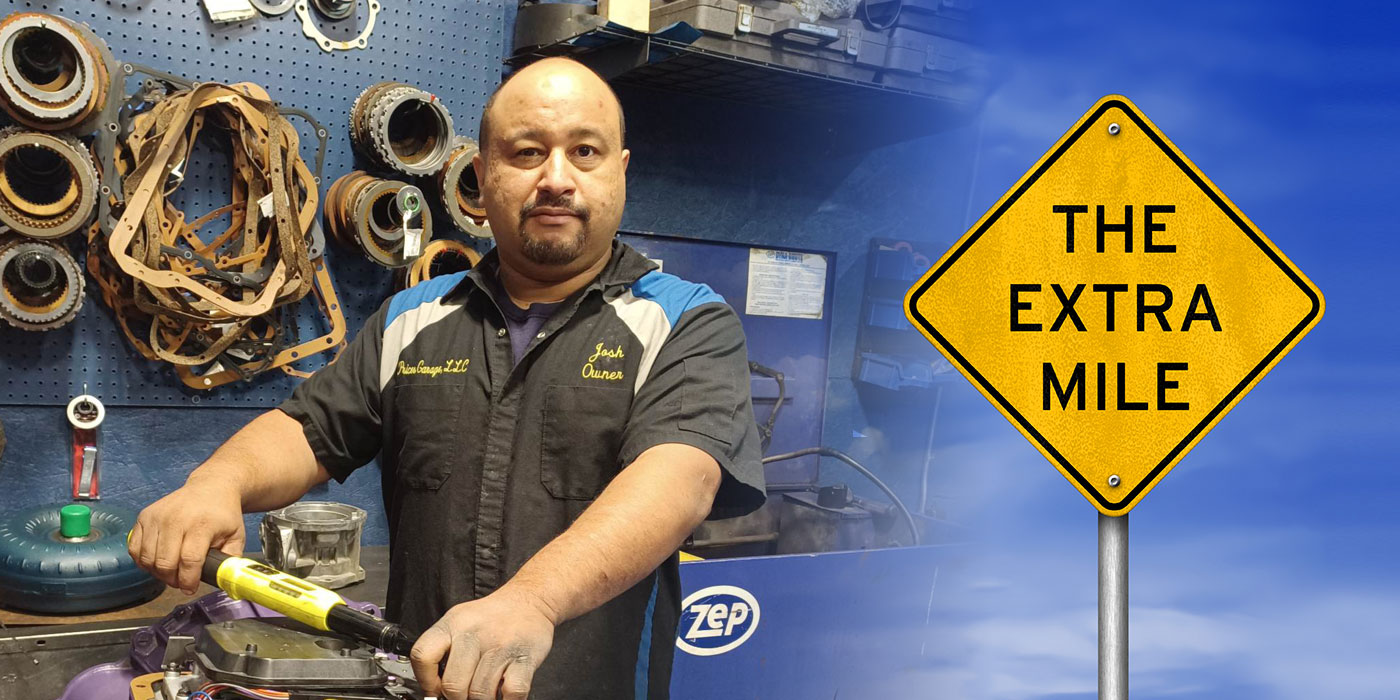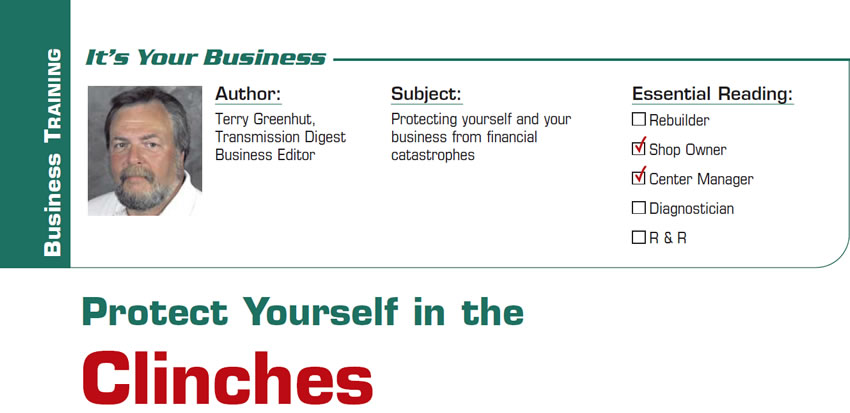
It’s Your Business
- Subject: Protecting yourself and your business from financial catastrophes
- Essential Reading: Shop Owner, Center Manager
- Author: Terry Greenhut, Transmission Digest Business Editor
We unfortunately live in an age when many people feel entitled to have money and possessions they have not worked to gain. Some have legitimate reasons for being in their financial position; others have created their own problems. In any event, when people need money and can’t or won’t work for it they often switch to an easier alternative, like taking from others. In addition, there are the accidental occurrences that can cause a business to lose considerable amounts, if not drive it out completely.
If you are a business owner or a manager responsible for protecting your or someone else’s business, you need to be continuously aware of those who might try to rip you off. You also must protect against catastrophic incidents that can devastate an otherwise thriving business. Taking precautions up front can save you thousands, if not everything, later on.
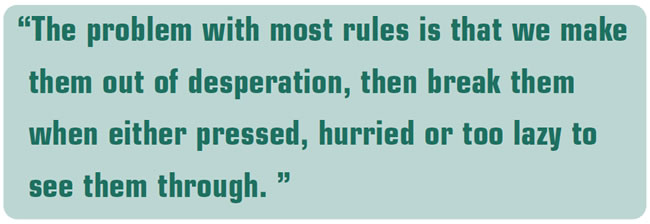
Our industry has long been looked upon as one in which the possibility exists for customers to be overcharged, sold goods and services they may not need or charged for work that wasn’t actually performed. These incidents don’t take place often. Many more times than not shop owners and managers undercharge rather than overcharge, or even quote realistic prices, for fear of scaring customers off. They would rather come up short of making the profit they should than to have customers even think they are being taken to the cleaners.
Are there some shops that take advantage? Of course there are. Just as in any other situation involving money, some unscrupulous people will figure out how to get it without working for it. Owners and managers of shops like that are nothing more than desperate people who either can’t figure out how to make money legitimately or have personality flaws similar to those of the customers who would attempt to do the same things to them.
If you are in the vast majority of legitimate automotive-shop operators, one of your biggest concerns besides demonstrating your integrity to your customers is to keep from having some of them, your employees or people who provide you goods and services steal what you work so hard to make. The fact that it doesn’t happen that often makes us complacent to it. We spend our time considering the bigger and more-pressing issues of running a business, therefore not doing all that much to protect ourselves.
Because we are honest and care about people, when someone does hurt us we are devastated by it. Some of us will then go into lockdown mode and get super strict over our processes for dealing with everyone around us to make sure it doesn’t happen again. That can hurt the business in other ways. A moderate approach to most business situations is usually the best way to mix safety with customer service.
How do you protect yourself? The best way is to have a set of rules to follow from which you don’t deviate. The problem with most rules is that we make them out of desperation, then break them when either pressed, hurried or too lazy to see them through. Have you ever noticed that when you make a rule, the moment you break it is when an incident occurs that lets you know why you shouldn’t have, and why you made the rule in the first place? For example, if you made a rule that you do not accept personal checks, it’s pretty much guaranteed that the first time you did take one it would bounce higher than a car with bad shocks on a bumpy road.

Here are some rules you can follow to protect from the minor and major catastrophes that, when they happen, make you wonder why you didn’t take that nice, safe job uncle Frank wanted to get you with the highway department:
1) Buy enough insurance to protect you from the major occurrences, but not so much that you wind up premium poor.
- a. Meet with an insurance agent who understands the industry and knows what you should protect against, then shop his price to be sure he isn’t overcharging you.
- b. Incorporate your business so if something wipes it out you won’t lose your personal assets.
- c. Look into umbrella policies that can cover you personally if a company loss from an incident is so great that it spills over to you.
- d. Decide how much risk participation you want. In other words, how much you are willing to go out of pocket when an incident occurs; that will determine your deductible.
- e. Look at the insurance company’s inspection as a means of protecting yourself instead of thinking it’s just another annoyance. Fix whatever the inspector tells you to so the company can’t come back later and deny a claim because you didn’t.
- f. Make sure your policy has liquor-host coverage in case anyone leaves your premises intoxicated and gets into trouble, but never allow customers or employees to drink or use drugs on the premises.
- g. Shop for your insurance regularly. There can be vast price differences between companies for the same coverage, and premiums have a way rising year to year when an agent thinks you aren’t watching.
2) Bring your facility up to OSHA code standards so a surprise inspection won’t catch you off guard and cost you lots of money in fines.
3) Remove any underground oil tanks, before they start to leak, following all government regulations.
4) Make certain that all employees have valid driver’s licenses. Recheck once a year.
5) Always perform a complete inspection of vehicles when they first come in, noting any damage or anything missing. Inspect them again before they leave to make sure your shop didn’t do damage or remove anything from them.
6) Don’t buy any advertising or promotions unless you know they are viable and legitimate.
7) Never allow a customer to take a vehicle off the premises before payment is made.
8) Never finance customers personally.
9) Never front money for materials to a contractor who is going to perform repairs or additions to your facility. Once the materials are on site it’s OK to pay for them, but not before. Any contractor who doesn’t have enough credit or the money to lay out for materials, at least ’til they get to your site, probably isn’t reliable enough to work for you.
10) Never take a personal check unless you can verify funds or subscribe to a check-guarantee service.
11) Never keep an employee who has been caught stealing from either you, a customer or another employee. If you don’t let him or her go it’s the equivalent of your condoning their actions. That can give everyone else the green light to steal. Be careful about firing and especially prosecuting people, though. If you can’t prove your case it could backfire on you and have you being sued for defamation of character, so before you accuse anyone of anything seek out legal advice.
12) Never relinquish control of the company’s money to a bookkeeper or money manager of any kind. Monitor and question constantly.
13) A scam artist’s most valuable tool is the greed of the “mark.” Any scheme presented to you that promises to make you extra money for doing next to nothing is most likely a scam.
14) Identity theft is one of the biggest problems and fears we face today. Be sure to protect the identities of yourself and your customers.
- a. Don’t leave credit cards unattended or write credit-card numbers on repair orders.
- b. If your credit-card receipt printer is old and still prints out the entire credit-card number instead of a bunch of x’s and only the last three or four digits, have it reprogrammed or replaced.
- c. Don’t leave receipts or bank statements out where they can be seen.
- d. Lock up checkbooks when not in use.
- e. If you print checks using the computer, don’t leave the blanks out. They have your account number on them. Anyone can grab one, hand-write a check and cash it.
- f. Don’t store user names and/or passwords on your computer.
- g. Never give out your Social Security number or any other personal information to anyone who solicits you.
- h. If you buy anything with a credit or debit card, know with whom you are dealing.
- i. Check your credit-card statements religiously. Anyone you hand your card to can run it more than once, charging their own purchases to you.
Always remember that the people you trust the most can get to you the easiest. Even if they have been straight with you in the past, these are tough times that can bring out the worst in people. Protect yourself!

Terry Greenhut, Transmission Digest Business Editor. Visit www.TerryGreenhut.com.


